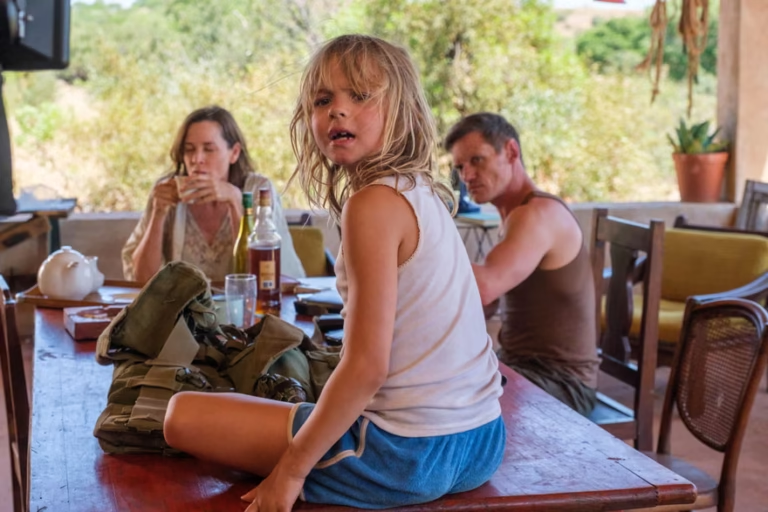Embeth Davidtz, known for her role in Schindler’s List, has made her directorial debut at the age of 60. Born in the U.S. and raised in apartheid-era South Africa, Davidtz has long felt like an outsider. Her first film adapts Alexandra Fuller’s memoir, Don’t Let’s Go to the Dogs Tonight, portraying Rhodesia’s turbulent final months before Zimbabwe’s independence in 1980.
Davidtz focuses on the story through the eyes of Bobo, an eight-year-old girl played by Lexi Venter. Living on a farm with her older sister and fearful, racist parents, Bobo narrates the events around her. The voiceover highlights her limited understanding of race, illustrating the prejudices of the time.
Davidtz also plays Bobo’s volatile mother, a woman prone to dramatic outbursts and clashes with Black locals. Originally, the role was intended to be larger, but Davidtz realized Bobo’s perspective was central. “Once I realized Bobo’s viewpoint would reveal the story best, I reduced my own screen time,” she says.
Directing Venter was a challenge. “Lexi is curious, funny, and free,” Davidtz explains. “If I asked her to act or memorize dialogue, it often failed. I had to improvise, grab moments, and observe her naturally.” She likens it to observing a wild lion cub in the wild.
The film allowed Davidtz to explore themes connected to her own upbringing. Like Bobo, she navigated a world of aggression and inequality as a child in South Africa. “My parents didn’t prepare me for life there,” she recalls. “I was raised by wolves in a way, figuring out the world on my own.”
She describes her early years as marked by violence and fear. “People drove recklessly. Violence was everywhere. There was always a sense that the majority could turn on you if you were white.” These experiences informed her understanding of Rhodesia’s tension during the film’s events.
Davidtz’s career took off with Schindler’s List, where she played a housemaid to the SS commandant. Despite this breakthrough, she says she struggled to find meaningful roles afterward. “I said ‘No’ too often and overthought things. I should have taken more chances.”
Her decision to direct was influenced by both professional and personal factors. Roles in Los Angeles had dwindled, and after surviving stage-3 breast cancer in 2013, she wanted to take control of her life and work. The treatment included chemotherapy, immunotherapy, and a double mastectomy. “Getting sick amplified everything,” she says. “It made me focus on what I want to accomplish.”
Davidtz’s filmmaking approach was also shaped by her disillusionment with acting. She now chooses roles carefully, seeking projects that inspire her. Her first directorial effort merges her passion for storytelling with a personal connection to the themes of childhood, survival, and resilience.
The film not only tells a story from the past but also resonates today. Davidtz notes that power and fear are often used to manipulate people. “It’s fascinating how leaders can stir fear by convincing others that everything will be taken away,” she says, drawing parallels to contemporary politics.
Turning 60 did not slow Davidtz down. She celebrates her milestone with a debut film full of energy and originality. “Making this film became a do-or-die mission,” she says. “There was nothing else to do but do it. People think I’m not tough, but there’s grit in me.”
Her film brings both historical insight and personal reflection, marking a bold step into directing. With Don’t Let’s Go to the Dogs Tonight, Davidtz proves she can transform her experiences and challenges into powerful storytelling, blending autobiography, history, and cinematic vision.







